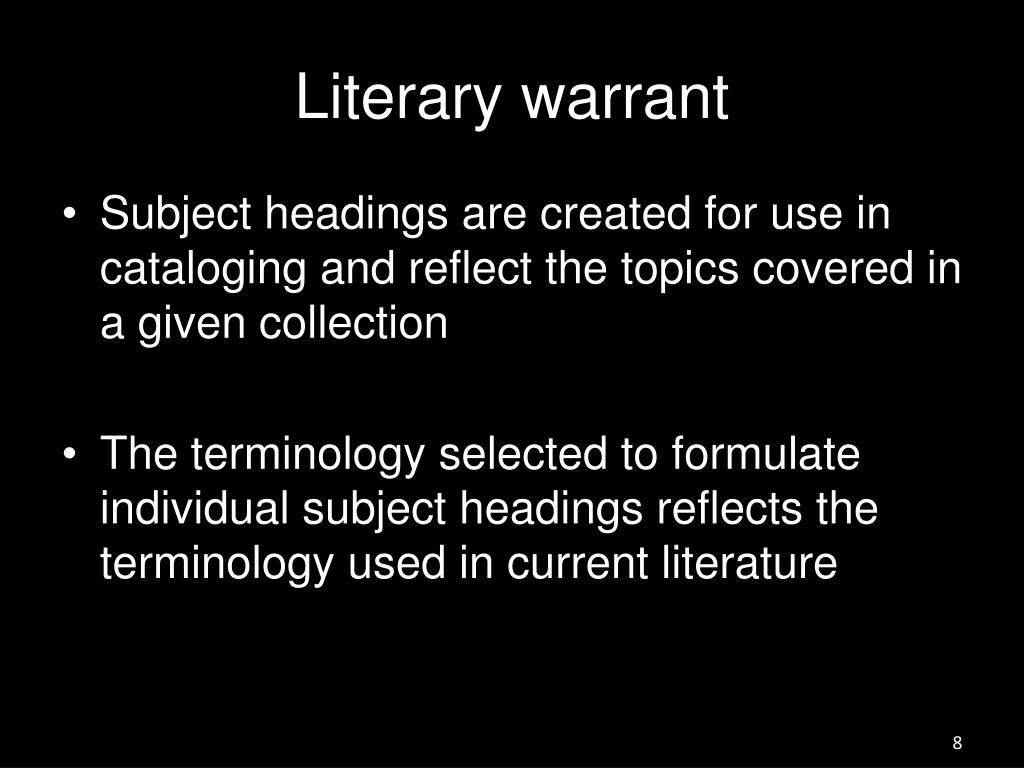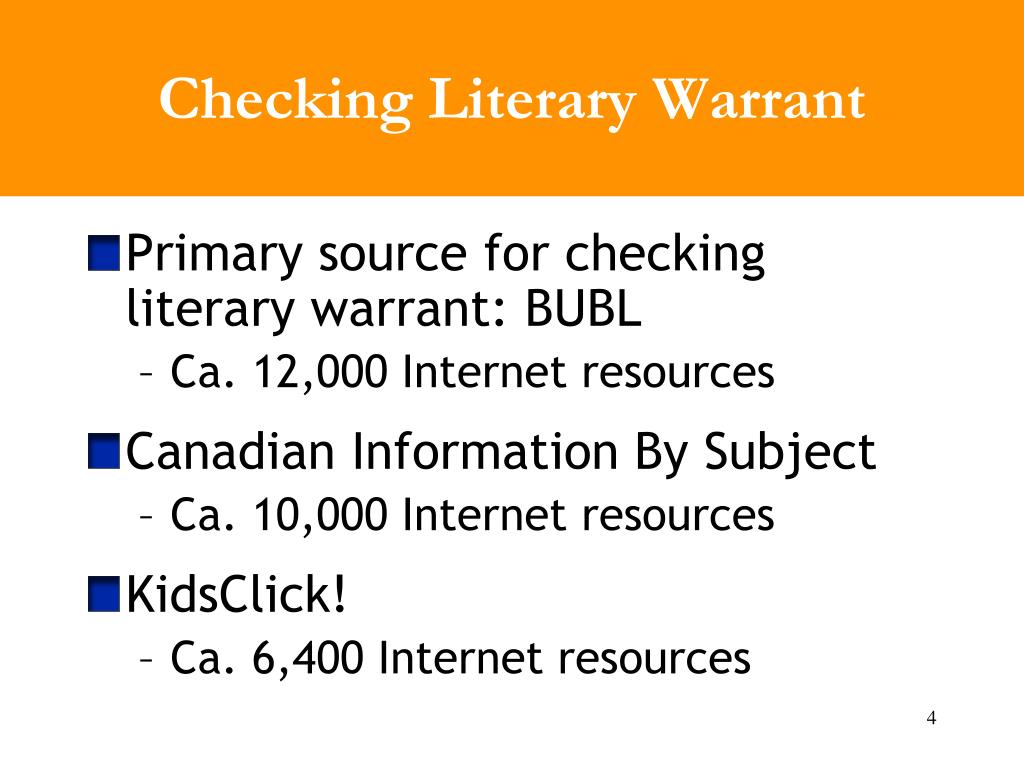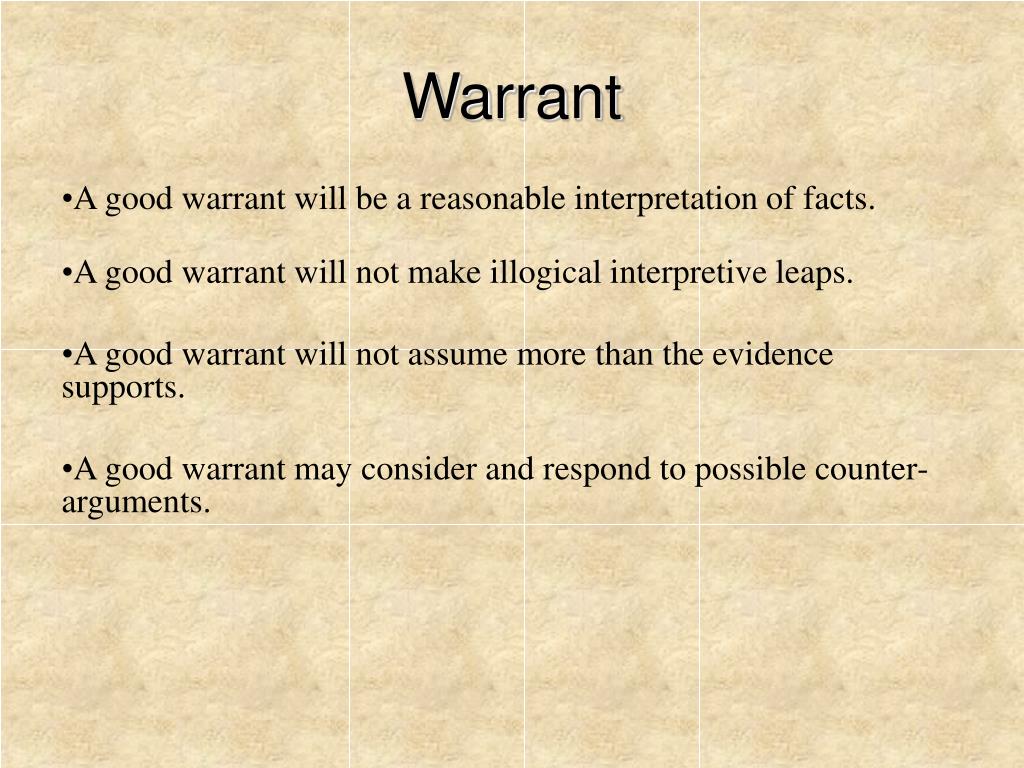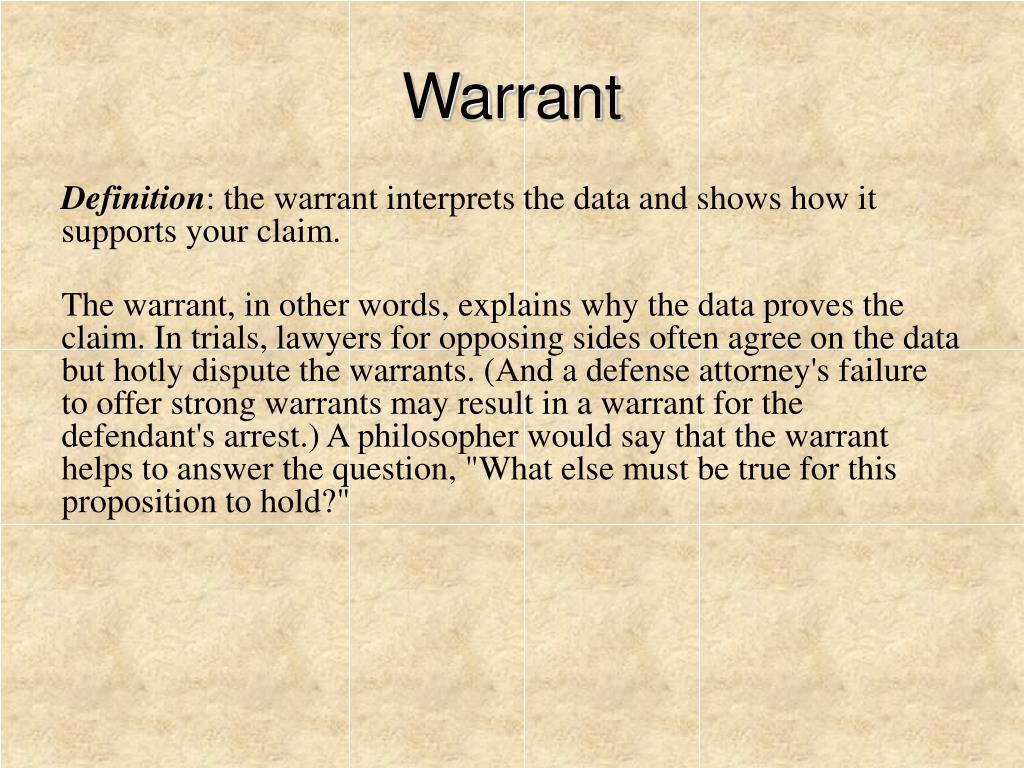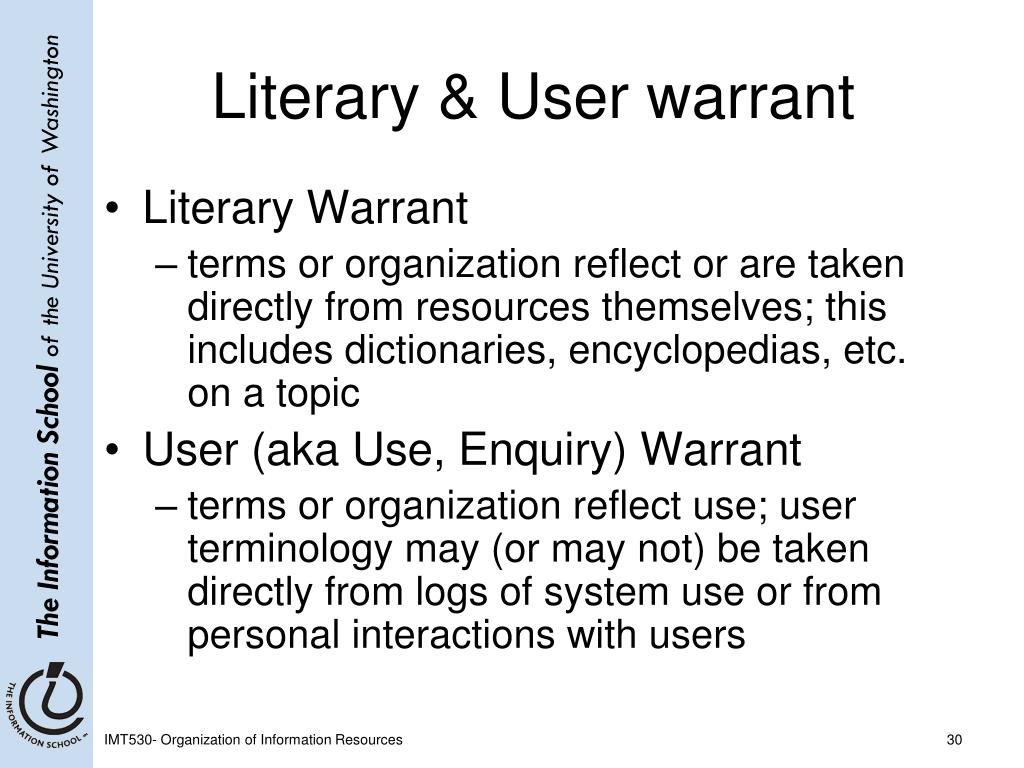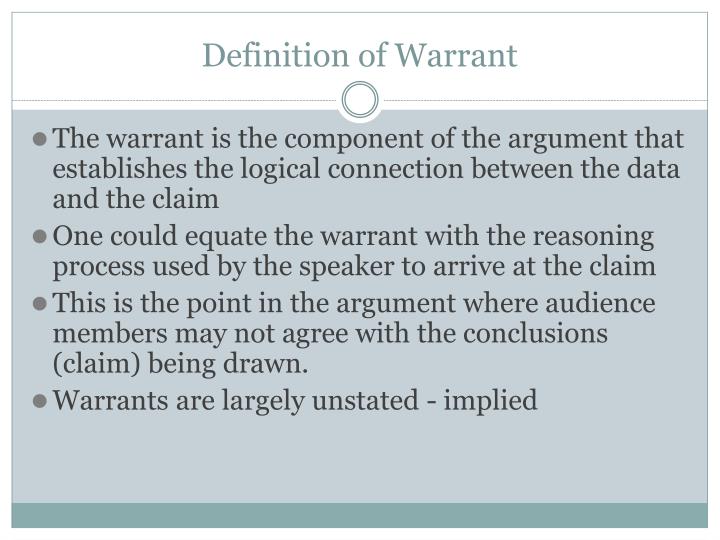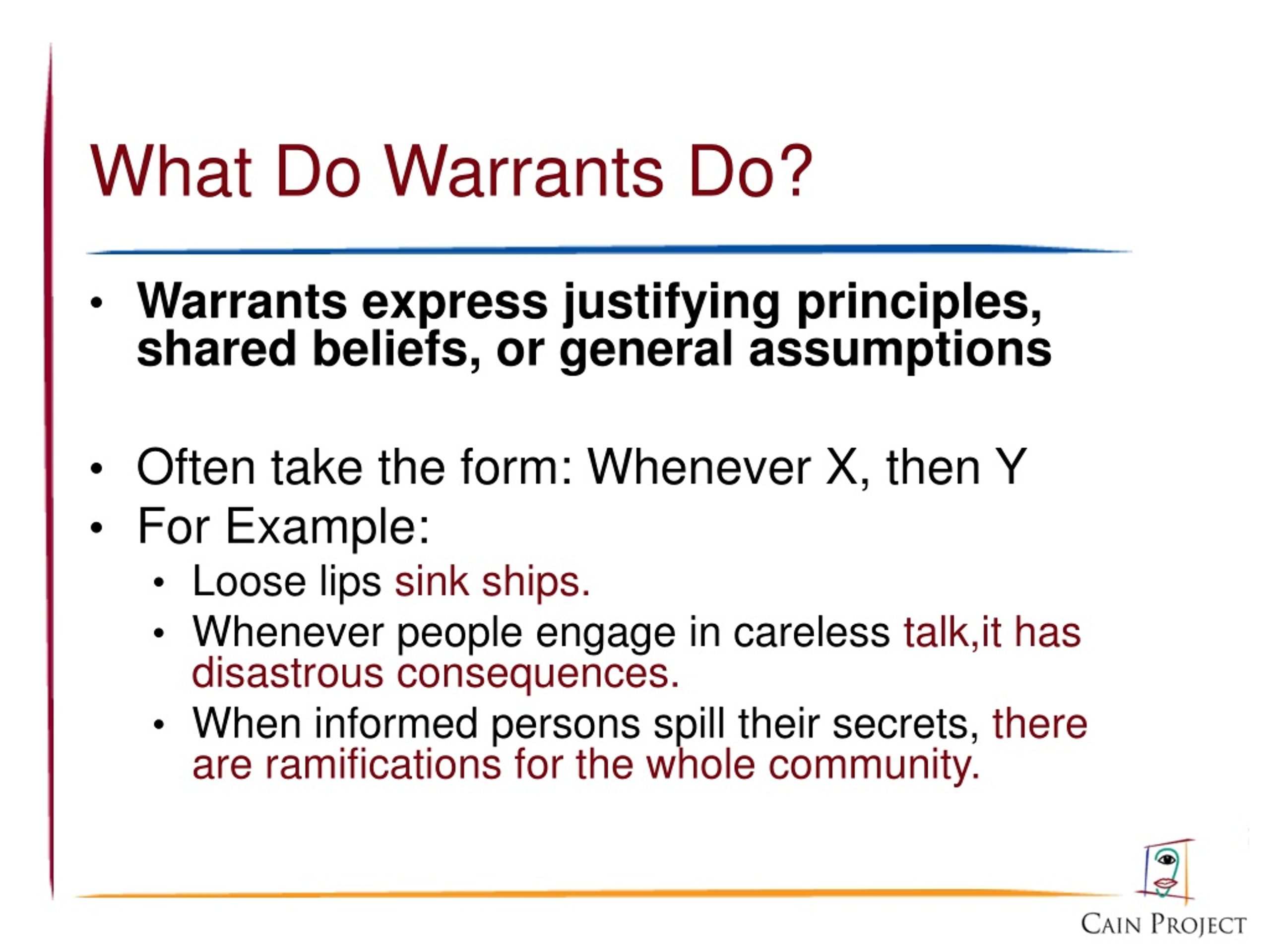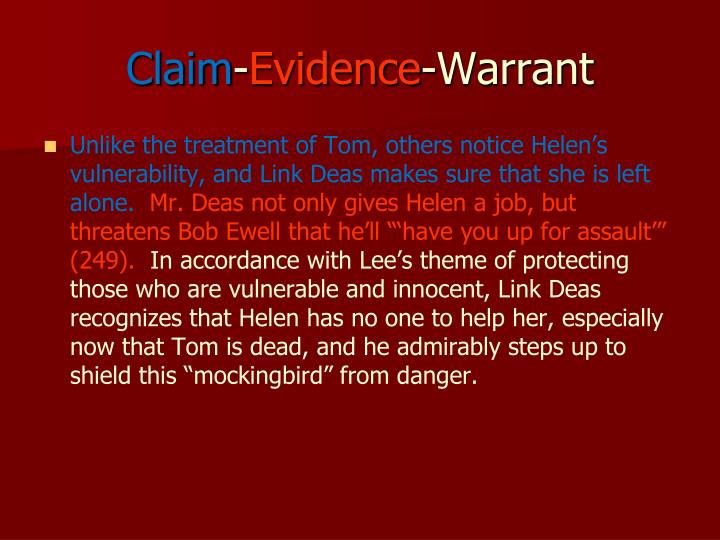Warrant Definition Literature - In rhetorical analysis, a claim is something the author wants the audience to believe. It serves as the underlying. A warrant is a logical connection that explains why the evidence supports the claim being made in an argument. A justification or authorization found in text. Warrants, they say, let[.] you connect a particular claim to particular evidence validly. They are like explanations that we know to be true (or think. Learn what warrants are and how they can strengthen your arguments in academic writing. What are claims, supports, and warrants? This glossary, for example, uses more than 6,000 citations from. See examples of warrants and how to use them.
They are like explanations that we know to be true (or think. Learn what warrants are and how they can strengthen your arguments in academic writing. A justification or authorization found in text. See examples of warrants and how to use them. Warrants, they say, let[.] you connect a particular claim to particular evidence validly. It serves as the underlying. In lis the term literary warrant thus means that that an indexer or classifier has to provide adequate ground for the indexing,. A warrant is a logical connection that explains why the evidence supports the claim being made in an argument. In rhetorical analysis, a claim is something the author wants the audience to believe. This glossary, for example, uses more than 6,000 citations from.
Learn what warrants are and how they can strengthen your arguments in academic writing. In lis the term literary warrant thus means that that an indexer or classifier has to provide adequate ground for the indexing,. A warrant is a logical connection that explains why the evidence supports the claim being made in an argument. A justification or authorization found in text. It serves as the underlying. What are claims, supports, and warrants? See examples of warrants and how to use them. They are like explanations that we know to be true (or think. Warrants, they say, let[.] you connect a particular claim to particular evidence validly. In rhetorical analysis, a claim is something the author wants the audience to believe.
PPT LIS512 lecture 10 LCSH basics PowerPoint Presentation, free
In lis the term literary warrant thus means that that an indexer or classifier has to provide adequate ground for the indexing,. A warrant is a logical connection that explains why the evidence supports the claim being made in an argument. What are claims, supports, and warrants? It serves as the underlying. Learn what warrants are and how they can.
PPT Sears List of Subject Headings Library of Congress Subject
In lis the term literary warrant thus means that that an indexer or classifier has to provide adequate ground for the indexing,. See examples of warrants and how to use them. Warrants, they say, let[.] you connect a particular claim to particular evidence validly. A warrant is a logical connection that explains why the evidence supports the claim being made.
PPT Using Literary Warrant to Define a Version of the DDC for
It serves as the underlying. Learn what warrants are and how they can strengthen your arguments in academic writing. What are claims, supports, and warrants? They are like explanations that we know to be true (or think. A warrant is a logical connection that explains why the evidence supports the claim being made in an argument.
PPT Writing Arguments PowerPoint Presentation, free download ID387550
In rhetorical analysis, a claim is something the author wants the audience to believe. See examples of warrants and how to use them. Warrants, they say, let[.] you connect a particular claim to particular evidence validly. It serves as the underlying. They are like explanations that we know to be true (or think.
PPT Writing Arguments PowerPoint Presentation, free download ID387550
A warrant is a logical connection that explains why the evidence supports the claim being made in an argument. Warrants, they say, let[.] you connect a particular claim to particular evidence validly. This glossary, for example, uses more than 6,000 citations from. They are like explanations that we know to be true (or think. A justification or authorization found in.
PPT Module 7a Creating Controlled Vocabularies PowerPoint
A warrant is a logical connection that explains why the evidence supports the claim being made in an argument. Warrants, they say, let[.] you connect a particular claim to particular evidence validly. It serves as the underlying. What are claims, supports, and warrants? Learn what warrants are and how they can strengthen your arguments in academic writing.
PPT Toulmin’s Model of Argumentation PowerPoint Presentation ID1102469
It serves as the underlying. This glossary, for example, uses more than 6,000 citations from. Warrants, they say, let[.] you connect a particular claim to particular evidence validly. A warrant is a logical connection that explains why the evidence supports the claim being made in an argument. In rhetorical analysis, a claim is something the author wants the audience to.
PPT Writing Module Three Five Essential Parts of Argument PowerPoint
Learn what warrants are and how they can strengthen your arguments in academic writing. A justification or authorization found in text. A warrant is a logical connection that explains why the evidence supports the claim being made in an argument. What are claims, supports, and warrants? Warrants, they say, let[.] you connect a particular claim to particular evidence validly.
PPT Literary Analysis Paragraph Structure PowerPoint Presentation
Warrants, they say, let[.] you connect a particular claim to particular evidence validly. In rhetorical analysis, a claim is something the author wants the audience to believe. A warrant is a logical connection that explains why the evidence supports the claim being made in an argument. See examples of warrants and how to use them. They are like explanations that.
PPT Argumentative Writing PowerPoint Presentation, free download ID
A warrant is a logical connection that explains why the evidence supports the claim being made in an argument. What are claims, supports, and warrants? In lis the term literary warrant thus means that that an indexer or classifier has to provide adequate ground for the indexing,. This glossary, for example, uses more than 6,000 citations from. Warrants, they say,.
Warrants, They Say, Let[.] You Connect A Particular Claim To Particular Evidence Validly.
See examples of warrants and how to use them. In lis the term literary warrant thus means that that an indexer or classifier has to provide adequate ground for the indexing,. It serves as the underlying. This glossary, for example, uses more than 6,000 citations from.
In Rhetorical Analysis, A Claim Is Something The Author Wants The Audience To Believe.
A justification or authorization found in text. They are like explanations that we know to be true (or think. What are claims, supports, and warrants? A warrant is a logical connection that explains why the evidence supports the claim being made in an argument.
